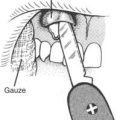IMMUNIZATIONS
Because the spectrum of infectious diseases changes with time and location, travelers to or between foreign countries should be aware of the necessity for immunizations. The Centers for Disease Control and Prevention (CDC) has a comprehensive traveler’s health website at wwwn.cdc.gov/travel/default.aspx.
A detailed, updated list of required immunizations by country can be obtained in the publication Health Information for International Travel (CDC), also known as the “Yellow Book.” The CDC Internet site, with links to the online copy of the Yellow Book and instructions for ordering a hard copy, is wwwn.cdc.gov/travel/contentYellowBook.aspx.
TETANUS
Here are the vaccines that are licensed as of this writing for different age-groups:
1. Tdap (tetanus, diphtheria, pertussis): Adacel (Sanofi Pasteur) ages 11 to 64 years; Boostrix (GlaxoSmithKline) ages 10 to 18 years
2. DTaP (diphtheria, tetanus, pertussis): Daptacel (Sanofi Pasteur) ages 6 weeks to 7 years; Tripedia (Sanofi Pasteur) ages 6 weeks to 7 years; Infanrix (GlaxoSmithKline) ages 6 weeks to 7 years; Pediarix (GlaxoSmithKline) ages 6 weeks to 7 years
3. Td (tetanus, diphtheria): Td (Sanofi Pasteur) ages 7 years and older
1. A person previously immunized should receive a booster dose of tetanus toxoid if his last dose was not administered within the past 10 years. A dose of Tdap vaccine (tetanus, diphtheria, and pertussis) may be administered if pertussis is a concern. Diphtheria immunization is usually boosted simultaneously. If there is a good chance that the traveler will suffer an injury during the trip, he should take a booster if the last dose was not administered within the past 5 years.
2. Nonimmunized individuals should become immunized with a series of three injections (this requires 3 to 6 months).
Low-risk (for tetanus infection) wounds are those that are recent (less than 6 hours old), simple (linear), superficial (less than ½ in, or 1.3 cm, deep), cut with a sharp edge (knife or glass), without signs of infection, and free of contamination with dirt, soil, or body secretions. High-risk wounds are those that are old (greater than 6 hours), crushed or gouged, deep (greater than ½ in deep), burns, frostbite, with signs of infection, and contaminated. If someone suffers a wound, here are standard recommendations:
| Victim | Low-Risk Wound (not heavily contaminated) | Contaminated Wound (tetanus-prone) |
|---|---|---|
| Never Immunized |
POLIOVIRUS; DIPHTHERIA; PERTUSSIS (WHOOPING COUGH); MEASLES, MUMPS, RUBELLA (GERMAN MEASLES); CHICKENPOX; HAEMOPHILUS B; ROTAVIRUS
Polio is still present in developing nations (e.g., sub-Saharan Africa, India, Nepal, Indonesia, Pakistan). Unimmunized adults (age greater than 18 years) should receive a series of three injections of the inactivated (virus) Salk vaccine, not the oral (Sabin) vaccine, which is recommended for children. Those under 18 who have never been immunized should receive three doses of oral polio vaccine 1 month apart. People who travel to high-risk areas (e.g., outside the Western Hemisphere) who were immunized as children should receive one booster dose of oral polio vaccine or an injection of e-IPV polio vaccine.
CHOLERA
Cholera is an intestinal infection caused by 2 serogroups (01 and 0139) of the microorganism Vibrio cholerae, either of which induces painful diarrhea and extreme fluid losses through the gastrointestinal tract. Cholera can reach epidemic proportions. It is estimated that 4 out of every 100 persons who acquire the illness die. A person whose stomach contains normal gastric acid is not at much risk for acquiring cholera. No country currently requires immunization, and the CDC does not recommend cholera vaccination for travel. However, some localities require proof of cholera immunization for travelers entering from a territory that still reports the disease. For this purpose, documentation of a single dose of oral vaccine (not available in the United States) generally is sufficient. The only vaccine available is a killed whole-cell vaccine. It is likely that as vaccines become less expensive, they will be used more often in areas where the infection is endemic.
MENINGOCOCCUS
The meningococcus is a bacterium (Neisseria meningitidis) that can cause meningitis, particularly in children and young adults. It is a wise idea for travelers to Nepal—particularly hikers and backpackers—to be immunized. Certain areas of sub-Saharan Africa are also considered high risk from December to June. Vaccination against meningococcal disease is not a requirement for travel to any country except Saudi Arabia, where travelers to Mecca during the annual Hajj and Umrah pilgrimage must have proof of vaccination. Menactra, a tetravalent meningococcal polysaccharide-protein conjugate vaccine (MCV4), provides protection against serogroups A, C, Y, and W-135 of the bacteria, and is given in one subcutaneous injection; protection for 5 years is achieved 1 to 2 weeks after administration. It is approved for persons ages 2 to 55 years. The vaccine is now recommended for children aged 11 to 12 years in the United States at their regular health care visit, and if at all possible before entry into college. The vaccine previously recommended by the CDC is Menomune, a tetravalent meningococcal polysaccharide vaccine (MPSV4) that is still available and is believed to be somewhat less effective. It is recommended for persons older than 55 years, or at any age if MCV4 is not available. The vaccines are believed to provide immunity for 5 years when administered at age 4 years or older. If someone has not been immunized and comes in close contact with a person known to have meningococcal disease, antibiotics can be prescribed within 14 days of exposure for 3 days to prevent or minimize the spread of the disease. The recommended antibiotics are rifampin for children and adults, ciprofloxacin for adults, or ceftriaxone (injection) for children and adults. Azithromycin in a single 500 mg dose is also likely effective.
HEPATITIS
A recombinant DNA vaccine (Recombivax, not derived from human plasma) for immunization against viral hepatitis type B is recommended for travelers to underdeveloped countries. A series of three injections requires 6 months to complete. Another recombinant vaccine is Engerix-B, which can be given on an accelerated schedule over 2 months. If a person has not been immunized against hepatitis type B and is exposed to the virus (e.g., by a needle stick), he may require an injection of hepatitis B immune globulin to provide short-term protection until immunity can be acquired from the DNA vaccine.
INFLUENZA
• All persons who wish to reduce the risk of becoming ill with influenza or transmitting the disease to others
• Children ages 6 months to 4 years
• All persons ages 50 years or greater
• Children and adolescents ages 6 month to 18 years receiving long-term aspirin therapy who might be at risk for experiencing Reye syndrome
• Women who will be pregnant during influenza season
• Adults and children who have immunosuppression caused by medications or HIV
• Adults and children who have chronic pulmonary (including asthma), cardiovascular (except hypertension), kidney, liver, blood, or metabolic (including diabetes) disorders
• Adults and children with any condition that might compromise respiratory function
JAPANESE ENCEPHALITIS
Japanese encephalitis is a viral disease transmitted predominantly by Culex mosquitoes in South Asia, Southeast Asia, and the Asian Pacific Rim. Wind-blown mosquitoes have perhaps spread the virus from Papua New Guinea to the Australian mainland. The victim first suffers a mild, nonspecific viral illness accompanied by fever and headache. Most infections remain mild. However, in an extremely small number of cases, the victim goes on to develop severe meningoencephalitis, characterized by headache, weakness, fatigue, fever, confusion, seizures, paralysis, and altered mental status. There is no specific therapy beyond supportive care. From 20% to 30% of victims die.
PHYSICIANS ABROAD
• Air Ambulance Network, Inc., Tarpon Springs, Florida
• Divers Alert Network, Duke University Medical Center, Durham, North Carolina
• Global Emergency Medical Service, Alpharetta, Georgia
• Global Rescue, Boston, Massachusetts
• International SOS Assistance, Philadelphia, Pennsylvania





